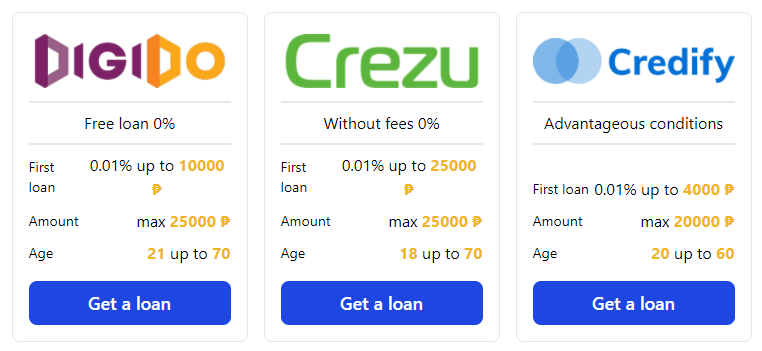When searching for business loans, the most important factor is to find reputable financial providers. The lending industry is unfortunately rife with scammers and predatory lenders who take advantage of unsuspecting borrowers. These unscrupulous lenders can cause serious financial harm to businesses, and it’s essential to know how to spot them.
Here are five warning signs to watch out for when seeking business funding:
1. The provider requests payment upfront
Also known as the Advance-Fee Loan scam, this is when a provider asks for payment first so you can access your loan amount. They often pass off the charge as a ‘processing fee’ or ‘convenience fee’ to process your application faster. Additionally, fake financial providers may ask you to pay via untraceable payment methods such as hard cash, cryptocurrency, or e-wallets.
Legitimate financial providers do not charge upfront fees to process loan applications. The same goes for most legitimate financial institutions.
2. Loan amount and interest rates are too good to be true
If the credit limit being offered is significantly higher than all other loan offers you’ve received, or if the interest rates are lower than 1%, this should raise a red flag. Legitimate providers will only issue loan amounts and interest rates that are commensurate with your business income, assets, and capacity to pay. After government funding programs, First Circle is the only legitimate financial provider offering the lowest interest rate in the market – 1.39% – which we only give to loyal clients and new clients with very good financials.
Scammers do not take the time to appraise your credit history and ability to pay. They purposefully seek desperate borrowers who do not have financial documents, but are willing to pay fees to find quick funding.
3. Pressure to decide as soon as possible
A business loan requires careful decision-making because it is a serious financial commitment. Good lenders will often walk you through the details of your business loan or revolving credit line before you take them.
In contrast, fake providers purposely give vague explanations. Instead, they repeatedly insist that their offer is on limited availability, and it will be gone if you don’t avail it within the day. Some scammers even make threats like ruining your credit history or blocking you from banks to rush you further.
4. No official loan offer documents
Scammers avoid paper trails to prevent incriminating evidence and transactions from being traced back to them. This is why they won’t send any documentation of their loan offers.
On the other hand, there are also predatory financial providers who may be legitimate, but you still want to steer clear from. These predatory lenders do not send official loan documents to prevent disclosing information such as:
- Terms and amortization schedule of a business loan
- Breakdown of how interest accrues overtime
- Percentage of where your loan payment goes to
- Other fees such as early payment fees and service fees
This is in contrast to legitimate and helpful financial providers, who outline the terms of a loan in an official loan offer document.
5. The provider doesn’t have a verified online presence
The most glaring red flag of a fake provider is a questionable online presence. Legitimate providers often have a strong online presence – a full-fledged website with valid SSL certificates, social media accounts with the verified blue checkmark, mentions from legitimate digital publications, and reviews on Google or other financial aggregators.
Some scammers, however, have developed more sophisticated ways to deceive. They can copy a legitimate provider’s branding, duplicate the legitimate website.
5. The provider doesn’t have a verified online presence
The most glaring red flag of a fake financial provider is a questionable online presence. Legitimate financial providers often have a strong online presence – a full-fledged website with valid SSL certificates, social media accounts with the verified blue checkmark, mentions from legitimate digital publications, and reviews on Google or other financial aggregators.
However, scammers have developed more sophisticated ways to deceive potential victims. They can copy a legitimate financial provider’s branding, duplicate their website, or even create fake apps and fill them with positive reviews to increase credibility.
For example, scammers created a fake app called CashLoanPH, using our branding, company name, address, and website links to communicate with customers via WhatsApp. They also populated their fake app’s Google Play page with fake five-star reviews.
To stay safe when finding business funding, always ensure that you transact only with trusted and legitimate financial providers. The best way to confirm a financial provider’s legitimacy is to look them up on the Securities and Exchange Commission (SEC) website. The SEC is the regulatory agency in charge of supervising the corporate sector and protecting the investing public.
In conclusion, finding legitimate funding for your business can be challenging, but it’s important to be aware of the red flags of financial scams. Remember, if an offer seems too good to be true, it probably is. Legitimate financial providers will take the time to assess your financial standing and provide clear and detailed loan offers. They will also have a strong online presence and can be verified on the SEC website.
Digido PH places a high emphasis on building transparent and trustworthy relationships with their clients. They firmly believe in not charging fees before disbursing funds and strive to facilitate consultation calls with eligible applicants to ensure that they have a comprehensive understanding of the terms and conditions of their revolving credit line. With their competitive interest rates and tailored approach to business financing, they remain dedicated to supporting the growth and success of small and medium-sized enterprises.
